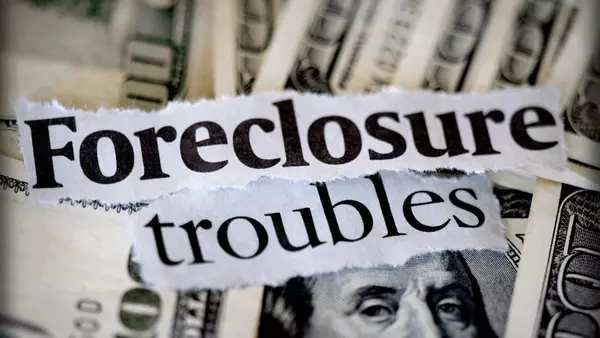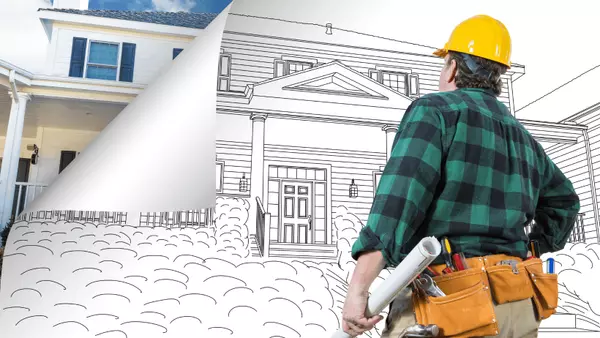Spring Décor Common Mistakes
When refreshing your home for spring, it's easy to make common decor mistakes that can make your space feel cluttered or mismatched. Here are some home decor mistakes to avoid this spring season:
Overloading on PastelsWhile pastels are great for spring, using too many can make your home look overl
Flipping Houses in Massachusetts: Is It Still Profitable in 2025?
Flipping houses—buying, renovating, and selling for a profit—has long been a popular real estate investment strategy in Massachusetts. But with rising home prices, higher interest rates, and fluctuating market conditions, is it still a profitable venture in 2025?Let’s break it down.
1. Home Prices
Short-Term Rentals in Boston: What You Need to Know About Airbnb Laws
If you're considering renting out a property on Airbnb or another short-term rental platform in Boston, it's important to understand the city's regulations. Here’s a quick breakdown of what you need to know:
1. Registration is Required 📝
All short-term rentals in Boston must be registered with the
Multigenerational Homes: Why They're Gaining Popularity in Boston
Multigenerational living—where multiple generations of a family live under one roof—is on the rise in Boston, and for good reason. From rising housing costs to the benefits of shared living, more families are embracing this lifestyle.
1. Affordability & Cost Savings 💰
With Boston’s competitive rea
Is Boston a Good City for Real Estate Investors?
Yes! Boston is a great city for real estate investors.Boston, with its rich history, vibrant culture, and strong economy, has long been an attractive destination for real estate investors. Whether you are a seasoned investor or just starting out, understanding the dynamics of Boston's real estate ma
16 Collectibles and Souvenir Stores to Visit in Boston
Souvenirs in Boston:
Boston is a city rich in history, culture, and sports pride, making it the perfect place to pick up unique souvenirs. Whether you’re a visitor looking for the perfect memento or a local seeking Boston-themed gifts, the city offers a variety of stores to explore. From classic “I
Buying a Vacation Home on Cape Cod: Worth the Investment?
Cape Cod has long been a beloved destination for those seeking a coastal retreat. With its picturesque beaches, charming towns, and relaxed lifestyle, it’s no wonder many consider purchasing a vacation home here. But is it a worthwhile investment? Let’s explore the key factors to consider before ma
Pet-Friendly Living: Best Boston Neighborhoods for Dog Owners
Boston is a great city for dog lovers, with plenty of parks, pet-friendly businesses, and walkable neighborhoods that cater to four-legged companions. If you’re looking for the best places to live in Boston with your dog, here are some top neighborhoods to consider.
South End
Home to Peters Park,
Best Boston Coffee Shops to Work From When House Hunting
House hunting in Boston can be exciting, but let’s be real—it’s also time-consuming and sometimes stressful. Whether you’re waiting between showings, comparing listings, or working remotely while scouting neighborhoods, a good coffee shop can be your best friend. Boston is filled with cozy cafés th
How to Stage Your Home for a Cozy Winter Showing
When selling your home in the winter, creating a warm and inviting atmosphere can make all the difference. With the colder temperatures and shorter days, buyers are looking for a home that feels comfortable, cozy, and welcoming. Here are some essential staging tips to help make your home irresistibl
Home Improvements with the Best ROI Before Selling in Boston
If you're planning to sell your home in Boston this spring, making strategic home improvements can help you maximize your return on investment (ROI). Buyers in Boston are looking for modern, well-maintained homes, and certain upgrades can significantly increase your home's value and appeal.
Her
Why Winter is a Great Time to Buy in Boston
Many people believe that winter is a slow season for real estate, but in reality, it can be a fantastic time to buy or sell a home in Boston. With motivated buyers, reduced competition, and potential deals, winter offers unique advantages for those looking to make a move. Here’s why you should consi
Discover Luxury Living at 348 Linwood Avenue: A New Construction Masterpiece in Newton, MA
Welcome to Linwood Avenue, where modern luxury meets timeless design. Nestled in the heart of Newtonville, 348 Linwood Avenue is a stunning collection of new construction townhomes that epitomize sophisticated living. Priced at $1,850,000, this exquisite property offers a blend of elegance and funct
A Hidden Gem in Newton: Discover the Exquisite 107 Truman Road
Nestled in the heart of Newton, MA, 107 Truman Road is a masterfully renovated ranch-style home that promises both luxury and convenience. With a listing price of $2,199,999, this stunning property offers an exceptional blend of modern amenities and timeless elegance. Whether you are looking for pro
Real Estate Market Opportunities
The real estate market is a dynamic landscape that offers a myriad of opportunities for both buyers and sellers. Whether you're looking to purchase your first home, sell an existing property, or simply stay informed about current market trends, understanding the nuances of the market can help you ma
Neighborhood Spotlights in Boston
Boston is a city rich in history, culture, and diversity, offering a unique blend of old-world charm and modern amenities. Each neighborhood within this vibrant city has its own distinct character and appeal. Whether you're considering moving to Boston, looking to invest in property, or simply explo
Top Things to Do in Boston This February 2025
Boston is a vibrant city year-round, but February brings a special charm with its winter festivities, romantic events, and cultural happenings. Whether you’re a local or visiting, there are plenty of activities to enjoy this month. Here’s a look at some of the best events and experiences in Boston
Boston offers a variety of exciting events throughout the month of February
Boston offers a variety of exciting events throughout February 2025, from lively winter festivals and outdoor markets to Galentine’s Day celebrations and special museum exhibits. Whether you're looking for a fun night out, family-friendly activities, or a unique cultural experience,
Boston Winter Survival Kit: Must-Have Items for the Cold Months
Boston winters are no joke. Between the frosty mornings, snow-covered streets, and bone-chilling winds, staying comfortable and prepared is key to surviving—and thriving—through the season. Whether you’re a seasoned local or new to the city, having the right essentials can make all the difference. H
Backyard Goals: Turning Your Outdoor Space Into an Entertainment Paradise
Your backyard is more than just an extension of your home—it’s a canvas for creating unforgettable moments. Whether you’re hosting lively summer barbecues, cozy winter gatherings, or relaxing solo afternoons, turning your outdoor space into an entertainment paradise is easier than you think. Here a

Melanie Gundersheim
Phone:+1(617) 997-8272
Leave a Message
MORE

Thinking About Renting Your House Instead of Selling? Read This First

7 Reasons Why the 2025 Fall Housing Market Could Be Hotter Than Spring

The Hidden Gems of the Fall Real Estate Market

A Second Home Might Be the Missing Piece in Your Retirement Plan

Online Home-Buying Search Terms Recently Hit 2-Year High

What Mortgage Delinquencies Tell Us About the Future of Foreclosures




















